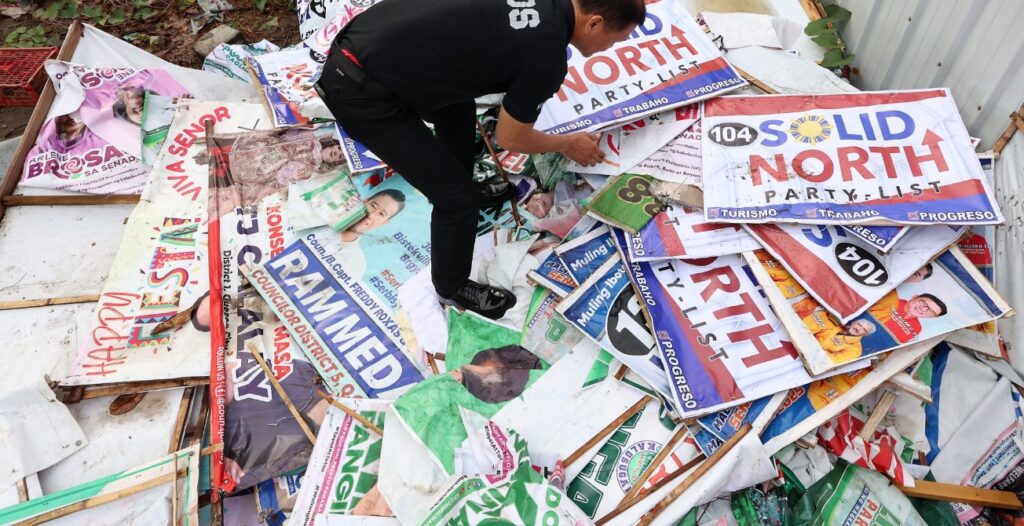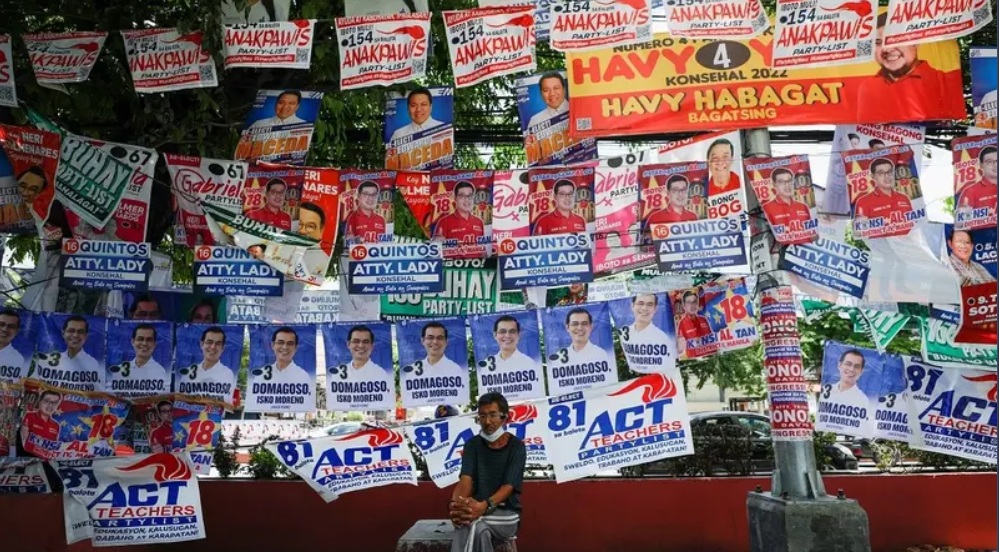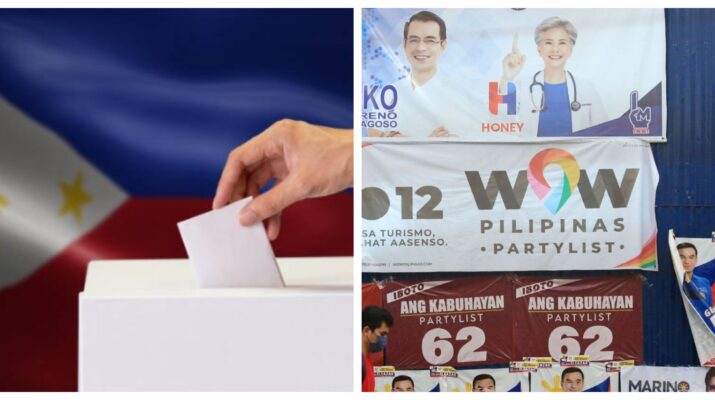After the fall of the Marcos Sr. dictatorship, efforts were made to prevent the Philippines from sliding back into plutocratic or oligarchic rule once again. To promote broader representation in the new Congress, particularly from underrepresented and marginalized sectors, the party-list system was established.
In Article VI, Section 5(2) of the constitution introduced in 1987, it mandated that “twenty per centum of the total number of representatives” in the new House of Representatives come from party-lists embodying sectors and groups that are at the fringes of society.
Yet, much like the provisions to prevent domination of foreign ownership of our public lands and mineral resources, this feature of the Constitution also failed to realize its intented purpose. Decades after the passage of the enabling law to bring the party-list system into fruition, the party-list system is generally regarded as a joke in Philippine politics.

This is due to the fact that many of today’s party-lists no longer represent any under-represented groups and are instead named after sports teams, popular television shows or movies, and worst of all – controlled by political dynasties, wealthy business interests and religious sects.
One such example is the Ang Probinsyano party-list, which according to its website purportedly represents “farmers, fisherfolk, and other marginalized groups“. However, none of its nominees are either farmers or fisherfolk and the party-list’s name itself originates from a popular television series of the same title.
Another attempt to use pop culture to bastardize the party-list system can be seen with the Agimat Party-list of the Revilla political dynasty. Its sole representative in Congress is Bryan Revilla, son of sitting Senator Bong Revilla, who in turn starred in a long-running TV series, “Agimat ng Agila“.
In both cases, the party-lists are hoping to enhance their respective electability by relying on name recall among voters. They do not represent any marginalized groups or sectors, but are instead vehicles to further the political clout of business interests and a political dynasty respectively.
Aside from television viewership, opportunistic candidates have also exploited sports culture to boost their chances of winning seats in Congress via the party-list system. An example is the 1-PACMAN party-list, which stands for: “One Patriotic Coalition of Marginalized Nationals”. As its name suggests, the party-list claims to be about helping the marginalized, yet it has stated that its main advocacy is sports development – which is not exactly an example of an under-represented group or sector.
The Probinsyano Ako party-list has been capitalizing on the star power of its celebrity endorser, Kim Chiu, in its promotion. It is a party-list allegedly advocating for provincial Filipinos, but is really a political vehicle for the Fariñas political dynasty of Ilocos Norte.
Putting its full name aside, the party-list is obviously a namesake of Filipino boxing legend Manny Pacquiao – who is widely known as the “Pacman” during his boxing career. The fact that the party-list’s two representatives in the 19th Congress are both business associates of the sports icon, casts further doubts on the authenticity of 1-PACMAN.
Another common trope political opportunists use to exploit the party-list system is by making their party-list nebulous in nature and composition and instead relying on star power of celebrities to attract voters. Groups such as Probinsyano Ako, ACT-CIS Party-list and Bicol Saro party-lists have no clear indication of their intended demographic based on their names, yet have secured seats in Congress on the back of having celebrity endorsers in the last election campaign.
Probinsyano Ako was supported by popular vlogger, “Ka Mangyan Vlogs” – which boasts over 13 million Facebook followers, in the 2022 general elections. In the 2025 midterms, it has recruited Filipina celebrity Kim Chiu to be their endorser. Meanwhile, Bicol Saro party-list benefited immensely from the popularity of film superstar, Nora Aunor, in the last election as well to secure their one seat in Congress.
The ACT-CIS party-list is widely known as the political vehicle of the Tulfo political clan. Two of its representatives in the 19th Congress were Jocelyn Tulfo (wife of current Senator Raffy Tulfo) and her brother-in-law, Erwin Tulfo. The Tulfo family have built a cult-like following through their radio and television shows purportedly exposing criminal activity and government corruption, creating a brand of protecting the ordinary Filipino masses.
Despite their stated aims, these party-lists have merely served to reinforce the political capital of these political dynasties or large business interests. This has become a common phenomenon in the party-list system; in fact, poll watchdog Kontra Daya released a study reporting that 55 per cent of the party-list groups contesting the 2025 midterm elections “do not represent the marginalized and underrepresented”.

Where did the party-list system go wrong?
While it may have started with honest intentions, the party-list system essentially defeated its purpose after the infamous 2013 Atong Paglaum v. COMELEC Supreme Court ruling. In this decision, the country’s highest judicial body ruled that the party-list system was not just for sectoral groups nor did they need to represent underrepresented or marginalized demographics.
Then-Associate Justice Antonio Carpio penned the decision stating: “It is sufficient that [party-list groups] advocate common ideologies or governance principles”, “regardless of their economic status as citizens”. The Supreme Court interpreted the words “marginalized and underrepresented” primarily in their electoral sense, that is, to benefit those who cannot win district elections for any reason, and only secondarily in its social justice sense, that is, to benefit those who deserve more law because they have less in life.
That 2013 ruling actually overturned a more progressive decision handed down in 2004, in the Ang Bagong Bayani v. COMELEC ruling by the highest court. In that decision, in contrast, then-Associate Justice Artemio Panganiban wrote: “The party-list system is a social justice tool designed not only to give more law to the great masses of our people who have less in life, but also to enable them to become veritable lawmakers themselves“.
The now-retired justice brilliantly summed up the importance of a genuine party-list system in the line: “the law crafted to address the peculiar disadvantages of the Payatas hovel dwellers cannot be appropriated by the mansion owners of Forbes Park.”
Nine years later this ruling would be overturned to favor a broader definition of “underrepresented and marginalized”, and twelve years after that 2013 Supreme Court ruling the party-list system has indeed gone berserk. Its intended purpose to empower the most powerless people in society has been greatly diminished, and the poor and marginalized are once again without a potent weapon to challenge the ruling classes.
The party-list system went wrong specifically because those that governed it did not belong to the Payatas dumpsite, but to those living in gated subdivisions like Forbes Park. Today this system is a shell of its former self and massive reforms are sorely needed.

